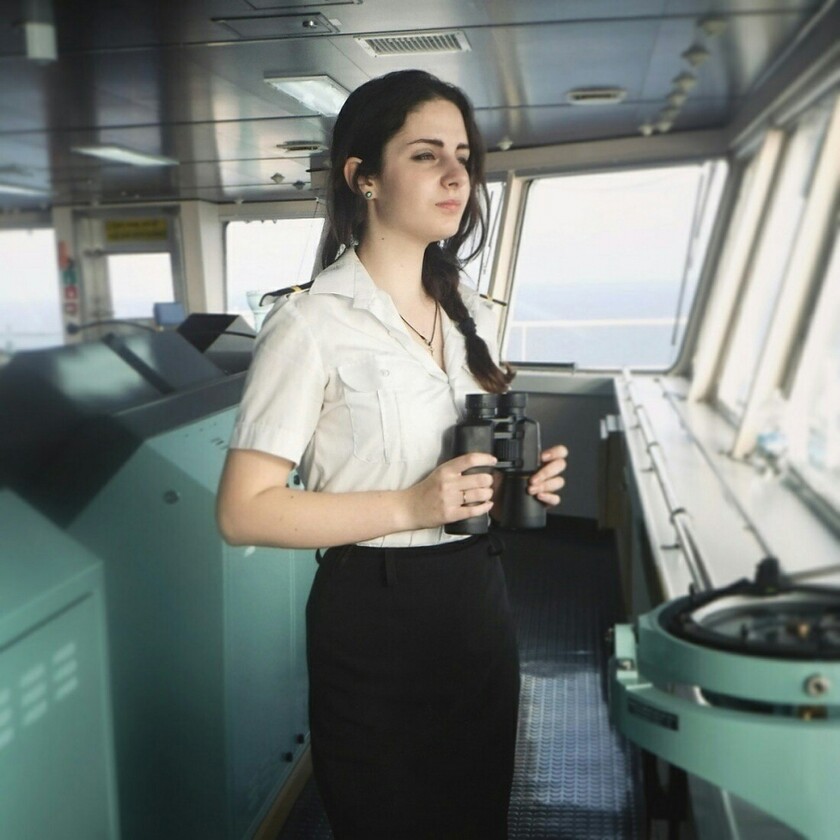Today is International Women’s Day and we are celebrating all the women who work as seafarers, making up 2% of the workforce. One of our SeafarerHelp team’s Russian speakers recently interviewed Ekaterina, a third officer from Ukraine, about her experience of being a woman seafarer.
[Translated from Russian]
How did you get into the marine profession?
In high school I had to decide which university to enter and what profession to choose. I knew that in the end I wanted to achieve a few things: interesting speciality, as well as the employment opportunities, a job in which I could apply and develop my strengths, ability to see the world, last but not the least important a good salary. That is how I decided to get a degree at Odessa National Maritime Academy.
What is your current rank and how did you get started?
I am 21 years old now. In July 2017 I graduated with a degree of a navigating officer. I started as a cadet. Now I'm doing my fourth contract and my rank at the moment is third officer.
Do male colleagues treat you in a different way because of your gender?
In all my marine experience (and I have always been working with mix nationalities crew), gender did not play a big role. I did and still do the same job as the men at my post. I cannot say that everything was always cloudless and wonderful – but the problems I faced were never gender-based.
Some seafarers comment negatively about the idea of women at sea. How do you feel about it?
I was faced with a lot of negativity from people whose work is mostly not connected with the sea. It seems ironic to me. I am a bit sad that stereotypes are quite strong in our society, but most of the seamen whom I know and work with are positive and supportive.
How would you describe your character and how does it help you in your work?
The desire to learn and know how things works and why, as well as doing work beyond basic requirements, are very important qualities for me. Equally important is a concern for colleagues.
Seafarers face a lot of challenges today. How do you cope with them?
Challenges are different. If something does not work out, I ask colleagues for help and always try to figure out the best way myself. If I make mistakes, I correct them as soon as possible and learn how to avoid them in the future. Of course, it's difficult to stay away from family and loved ones, but what can you do about it? All sailors go through this, in my opinion it helps us to appreciate loved ones even more. Unfortunately, not all problems can be solved quickly and simply. For example, I had a problem with career growth, so I had to change the type of ships and company and learn a lot from scratch. But it seems to me that in the end difficulties often turn out to be for the better.
As for the heavy workload, it is a common myth that women are not able to cope with the demand of the profession. Today physical work has its limitations; there are safety rules and standards aimed at preventing accidents and so on. Following them, as well as maintaining a good physical shape, it is easy to perform the required physical work. For my cadet practice I worked on deck doing the same job as male colleagues and received a huge amount of valuable experience. The officer’s work is mostly mentally focused, although we sometimes have to work with our hands. But it is always enjoyable work for me.
What would you like to say to all women considering a career at sea?
I would like to wish all women in the world: do not limit yourself, do not be afraid of criticism, do things that you like most, strive for your dream and enjoy life. Because life is beautiful, we are beautiful and we can succeed!




